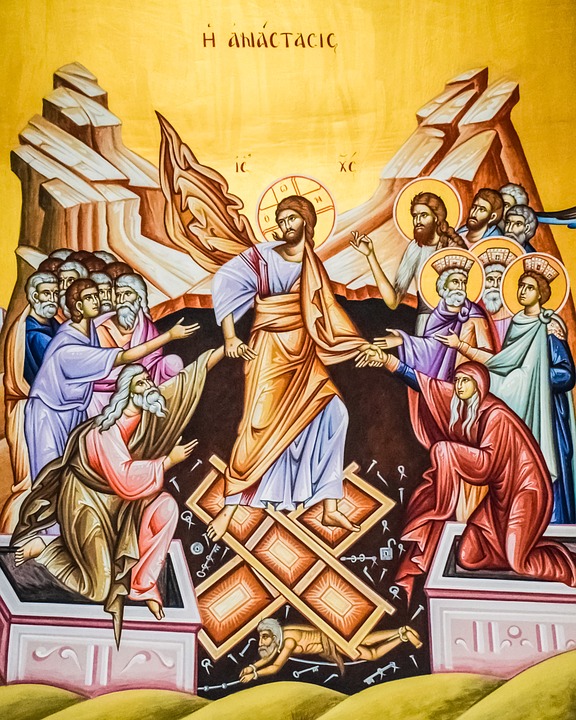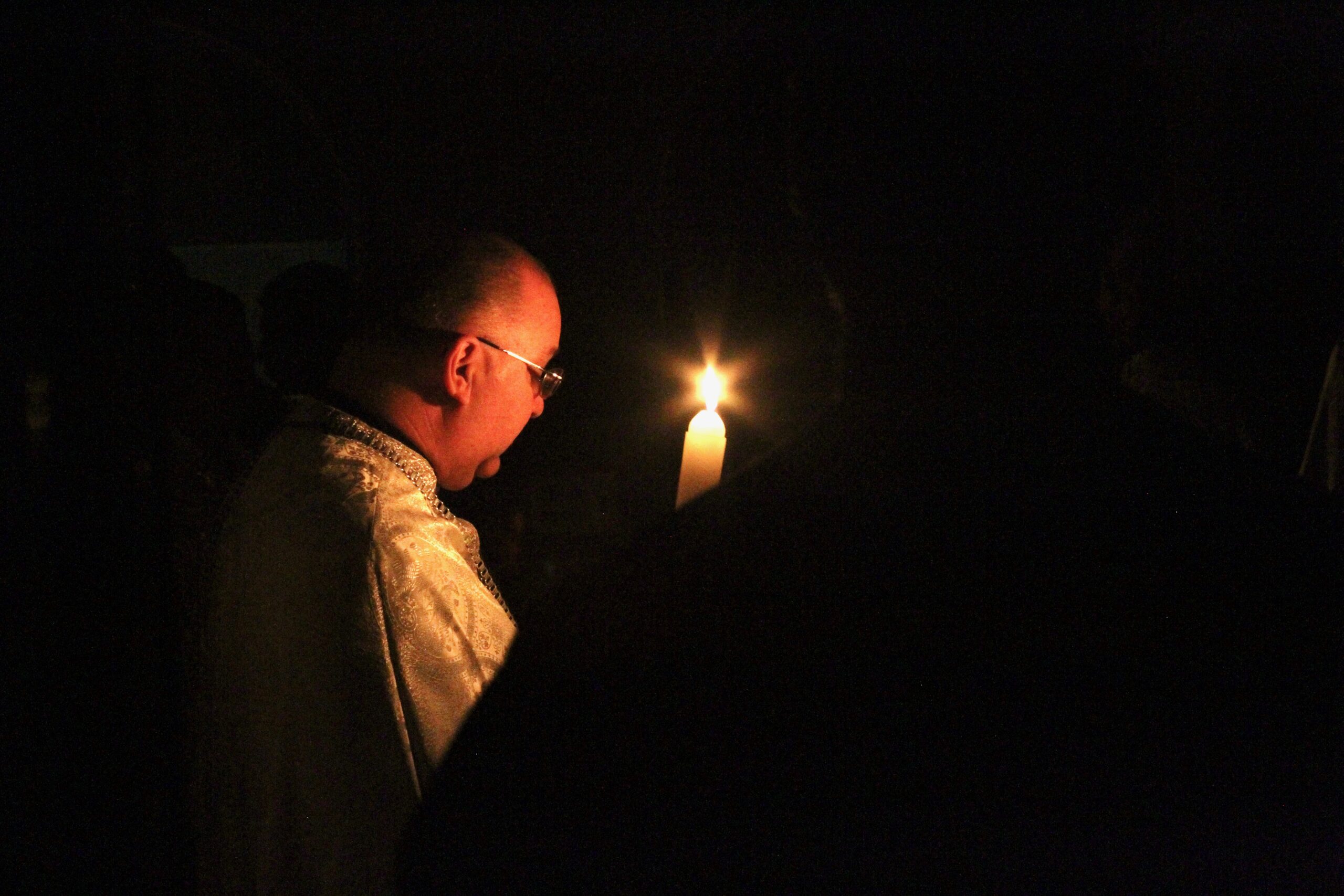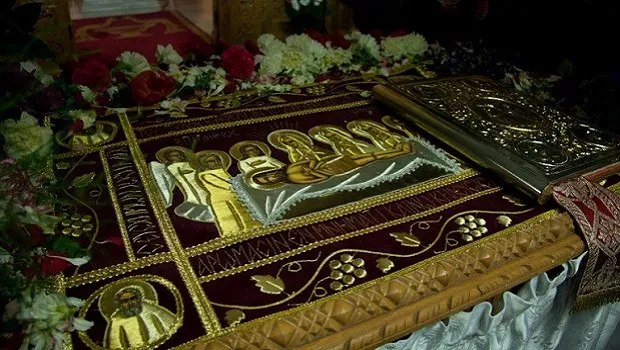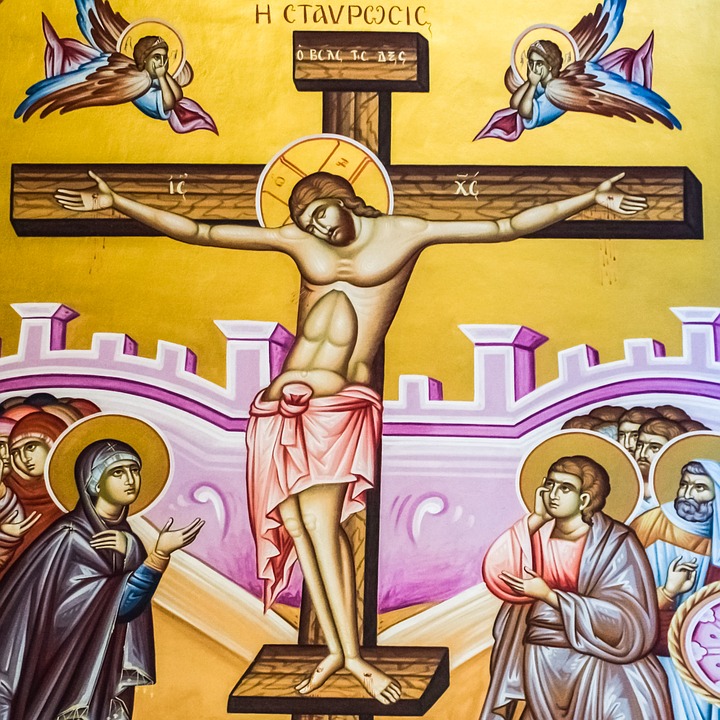Six days before the Passover, Jesus came to Bethany, where Lazarus was, whom Jesus had raised from the dead. There they made Him a supper; Martha served, and Lazarus was one of those at table with Him. Mary took a pound of costly ointment of pure nard and anointed the feet of Jesus and wiped His feet with her hair; and the house was filled with the fragrance of the ointment. But Judas Iscariot, one of His disciples (he who was to betray Him), said, “Why was this ointment not sold for three hundred denarii and given to the poor?” This he said, not that he cared for the poor but because he was a thief, and as he had the money box he used to take what was put into it. Jesus said, “Let her alone, let her keep it for the day of My burial. The poor you always have with you, but you do not always have Me.” When the great crowd of the Jews learned that He was there, they came, not only on account of Jesus but also to see Lazarus, whom He had raised from the dead. So the chief priests planned to put Lazarus also to death, because on account of him many of the Jews were going away and believing in Jesus. The next day a great crowd who had come to the feast heard that Jesus was coming to Jerusalem. So they took branches of palm trees and went out to meet Him, crying, “Hosanna! Blessed is He who comes in the name of the Lord, even the King of Israel!” And Jesus found a young ass and sat upon it; as it is written, “Fear not, daughter of Zion; behold, your king is coming, sitting on an ass’s colt!” His disciples did not understand this at first; but when Jesus was glorified, then they remembered that this had been written of Him and had been done to Him. The crowd that had been with Him when He called Lazarus out of the tomb and raised him from the dead bore witness. The reason why the crowd went to meet Him was that they heard He had done this sign.
John 12: 1-18 (Gospel of Palm Sunday)
When we think of Palm Sunday, we tend to think of the reveling crowds of children who waved palm branches and shouted “Hosanna” as Jesus passed by. In many of our churches, we will act out the scene with our children, as crowds of people (many of whom don’t go to church regularly) will flock to the churches today.
The theme of Jesus’ entire earthly ministry can be summarized as follows: Humility leads to salvation. We begin with the Incarnation, when the Creator came to live amongst His creation. As God, He showed people His power to heal the sick and even raise the dead. The day before Palm Sunday He raised Lazarus from the dead. The Gospel lesson connects the two events by mentioning Lazarus. It also mentions how Jesus had supper with Mary, Martha and Lazarus, His friends. During the meal, Mary anointed the feet of Jesus and dried them with her hair. This was certainly an act of her humility. She knew Jesus as a friend, but bowed before Him as Lord.
Jesus, on the other hand, knew us first as Lord, and through the Incarnation, He came to know us, His creation, as friends. This is why in John 15: 13-14, Jesus said to His Disciples: “Greater love has no man than this, that a man lay down his life for his friend. You are My friends, if you do what I command you.” Jesus experienced the full human experience. What humility for the Son of God to live with His fallen creation, and to partake of the human frailties of hunger, sadness, fear, fatigue, betrayal, etc. Jesus knew that His entrance into Jerusalem was the beginning of the final leg of His earthly ministry, that in mere days He would be betrayed, tries, tortured, condemned and killed. He entered Jerusalem not as a conquering king but as a humble servant on a donkey. He didn’t enter Jerusalem expecting us to bow to Him as His subjects. Rather He rode a donkey into town in front of friends. And five days later, He would lay down His life for His friends.
The crowd was happy and jovial on that day we now call Palm Sunday. Five days later, the same crowd cried “Crucify Him! Crucify Him!” and demanded that Jesus be put to death. How could the crowd that was so happy to see Jesus become violent and blood-thirsty toward Him? The answer lie in lack of knowledge and lack of humility. They didn’t know Christ as Savior. Friends turn on friends all the time, and even some of the friends turned against Jesus. The Evangelist John write that “The reason why the crowd went to meet Him was that they heard He had done this sign (raising Lazarus).” (John 12:18) Did the crowd go to Jesus out of love, or out of curiosity? I supposed we should ask why the crowds flock to church on Palm Sunday and not on other days of the year. Is it to check a box? Or out of curiosity? The people who love Jesus, the people who know Jesus, flock to church every Sunday, eager to share fellowship with Him, eager to share the Divine Fellowship of Holy Communion with Him.
As we stand in the crowd today at church, it is appropriate to reflect on how we see Jesus—are we curiosity seekers? Box checkers? Pilgrims seeking to know Jesus? Friends eager to be with Jesus? We don’t come to church each week for signs or out of obligation. We come each week to BE with Christ, and to share in the Divine Fellowship of the Eucharist with Him as often as we can.
The book of Proverbs begins with the words “The fear of the Lord is the beginning of knowledge; fools despise wisdom and instruction.” (Proverbs 1:7) We can’t approach with fear or with awe unless we approach with humility. Today’s feast is often called “The Triumphal Entry into Jerusalem.” It should be called “The Humble Entry of our Loving King!”
To confirm the general resurrection before Your Passion, You resurrected Lazarus from the dead, O Christ our God. Therefore imitating the children, carrying the symbols of victory, we cry out to You the Victor over death: “Hosanna in the highest! Blessed are You, the One, who comes in the name of the Lord.” (Apolytikion, Feast of Palm Sunday, Trans. by Fr. Seraphim Dedes)
Enter Holy Week with the humility of Christ!



